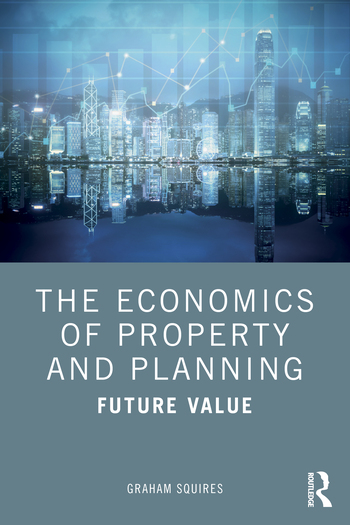
Given the imminent release of my new book ‘The Economics of Property and Planning’, here is some text on the book’s relevance and importance. Both as general reading curiosity and academic study.
At the forefront of the economics of property and planning is the global effort to curb climate change and rebalance a widening inequality. A great deal of this effort will focus on the future of property in place and resources.
Inhabited places are energy-intensive with concentrations of transport use, heating and cooling homes and offices, as well as economic activity to generate income.
Urban places do not function in a separate silo from rural places and thinking needs to consider their symbiosis. For instance, the food and resources for sustenance will be heavily dependent on agriculture that will be deemed as rural in land use. As such, the resources in both planning and property, in shared urban and rural space, are vital to understanding in economic terms.
As well as a contribution ‘to’ climate change, places around the globe are also vulnerable to the potential consequences ‘of’ climate change. These include an increase in the frequency of warm spells/heat waves over most land areas, a greater number of heavy downpours, a growing number of places affected by drought, and an increase in the incidence of extremely high sea levels in some parts of the world.
Economic problems will be generated from these physical risks posed by future climate change, with some areas facing difficulties in affording to provide basic services following change.
With regard to rebalancing inequality, climate changes will affect water supply, physical infrastructure, transport, ecosystem goods and services, energy provision, and industrial production. At a more micro-scale, local economies will be disrupted and populations will be stripped of their assets and livelihoods.
Disparities of income and wealth at a macro-scale can also be extrapolated with arguments that those poorer areas are doubly disadvantaged with a lack of wealth to mitigate against climate change whilst being subject to its damaging effects.
In understanding what the economics of property and planning entails, an overview of its importance as a subject and its relevance to both knowledge and practice will need to be determined.
Placemaking and resource allocation in economics can be unpacked to demonstrate ideas around ‘future value’ in the mainstream disciplines of property and planning.
Advance order of paperback and hardback here: https://www.routledge.com/The-Economics-of-Property-and-Planning-Future-Value/Squires/p/book/9780367629670